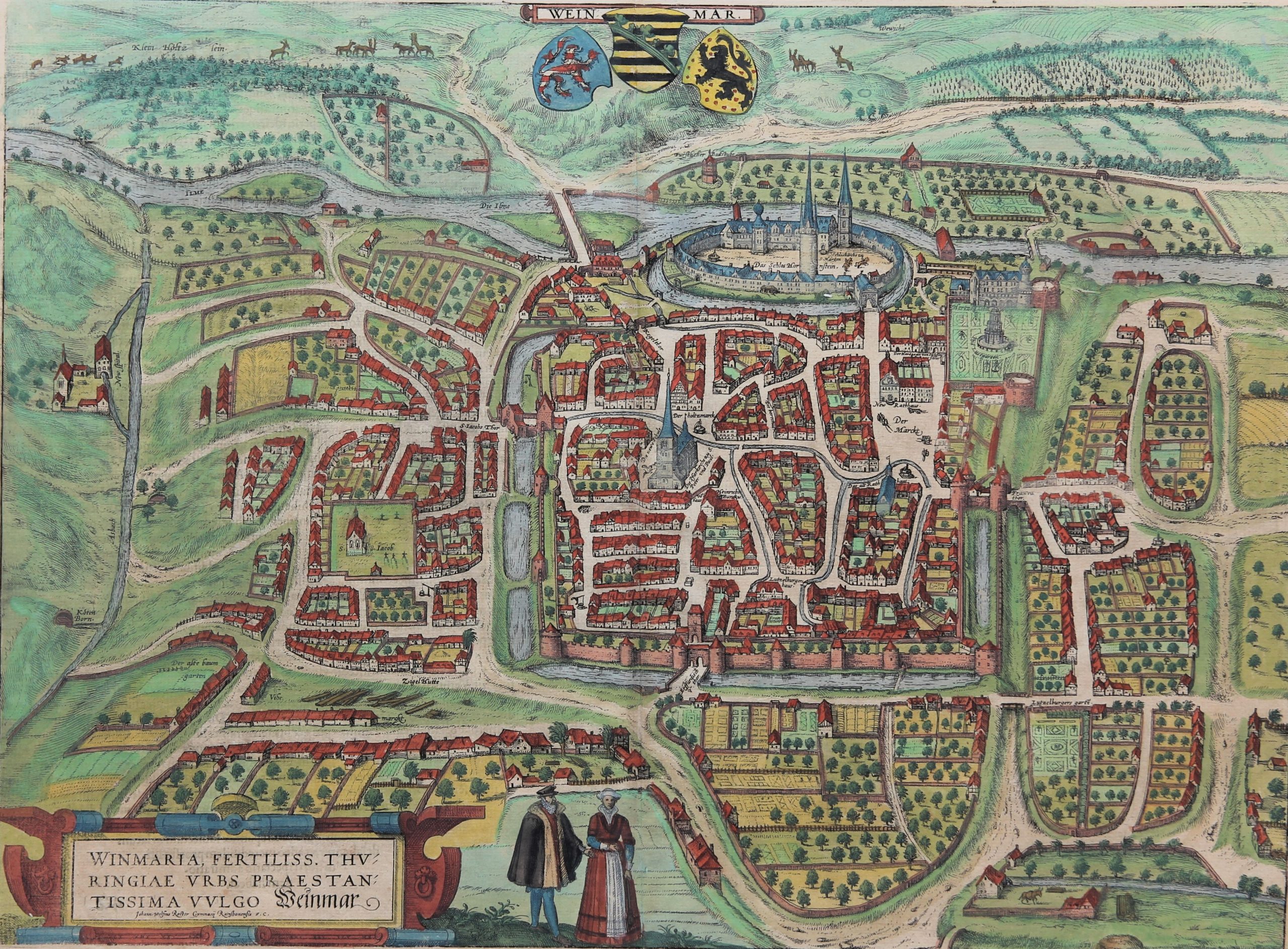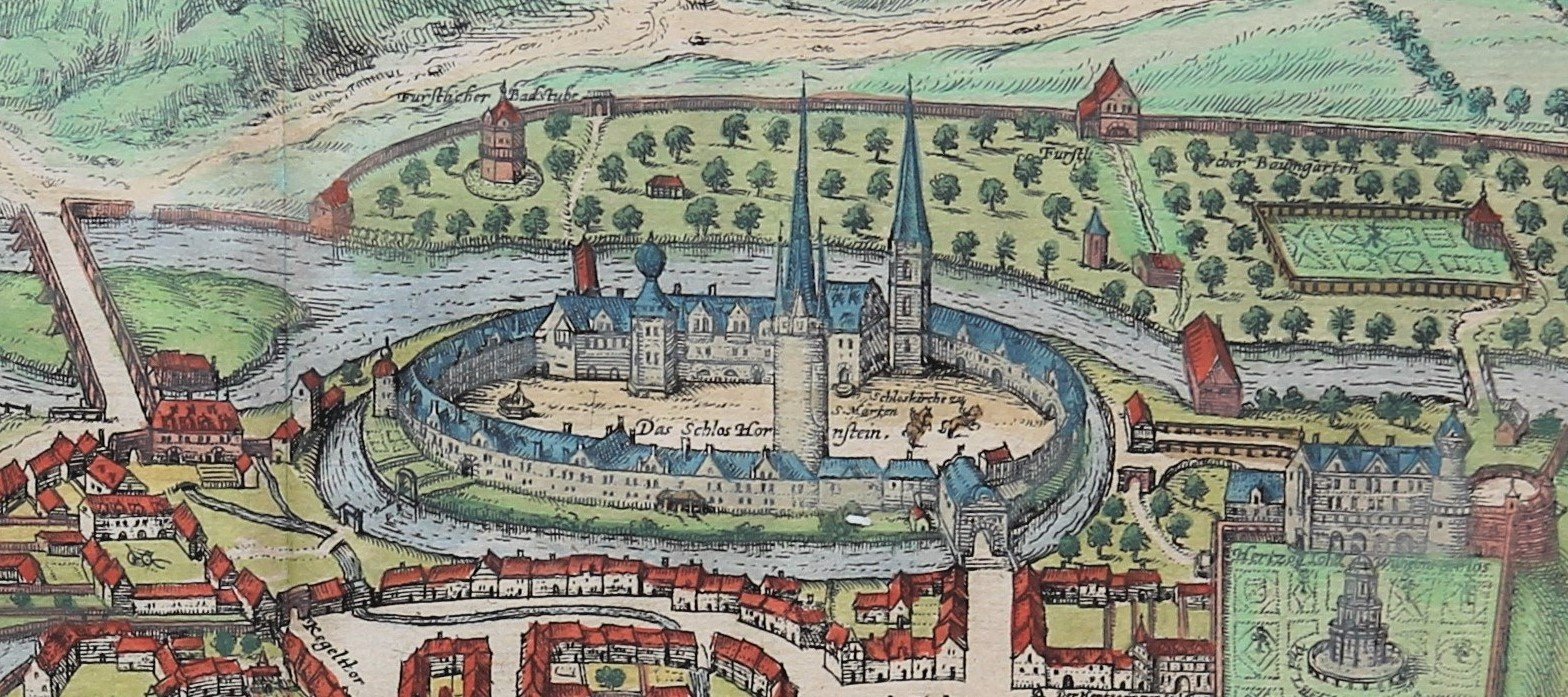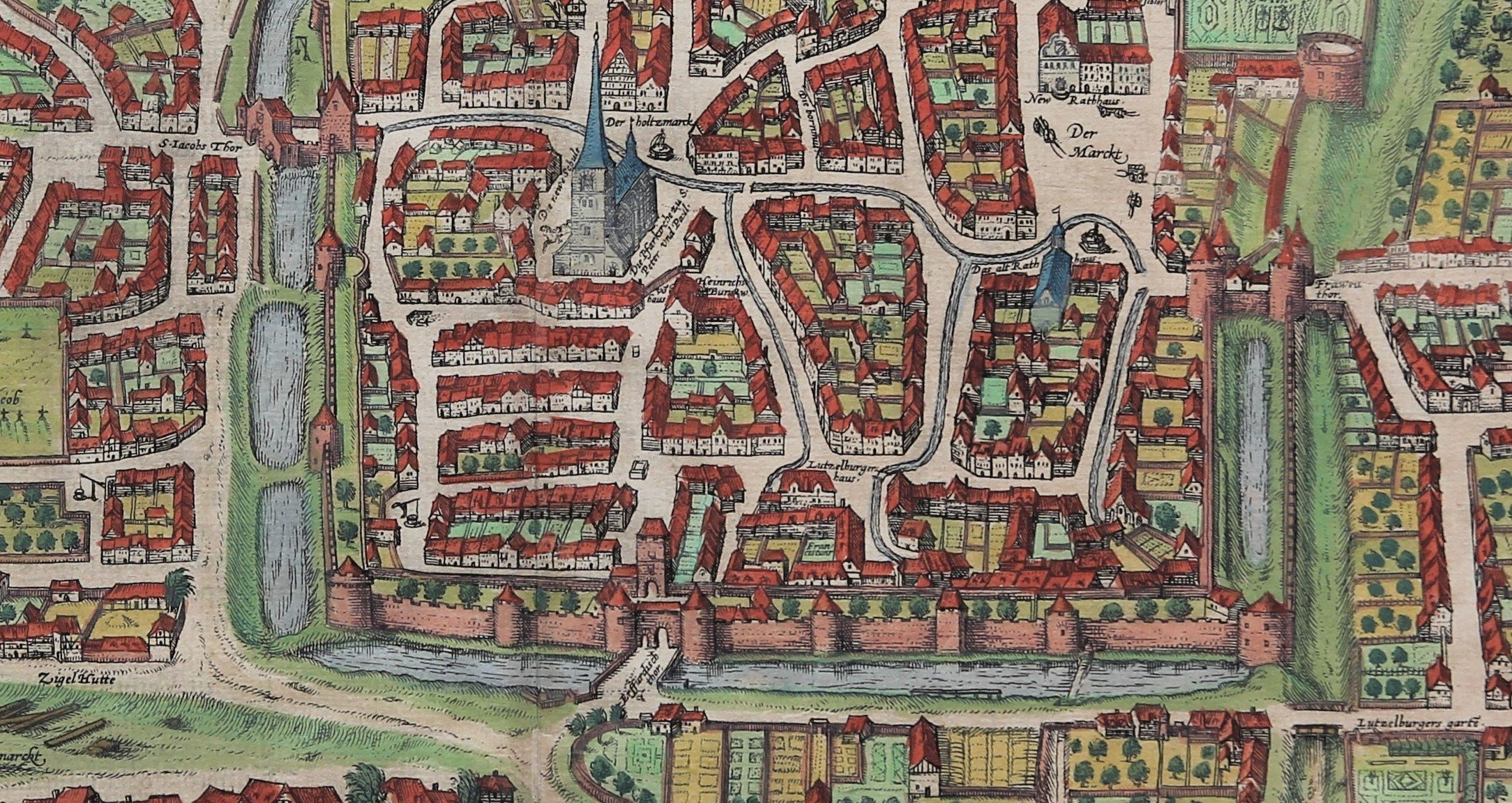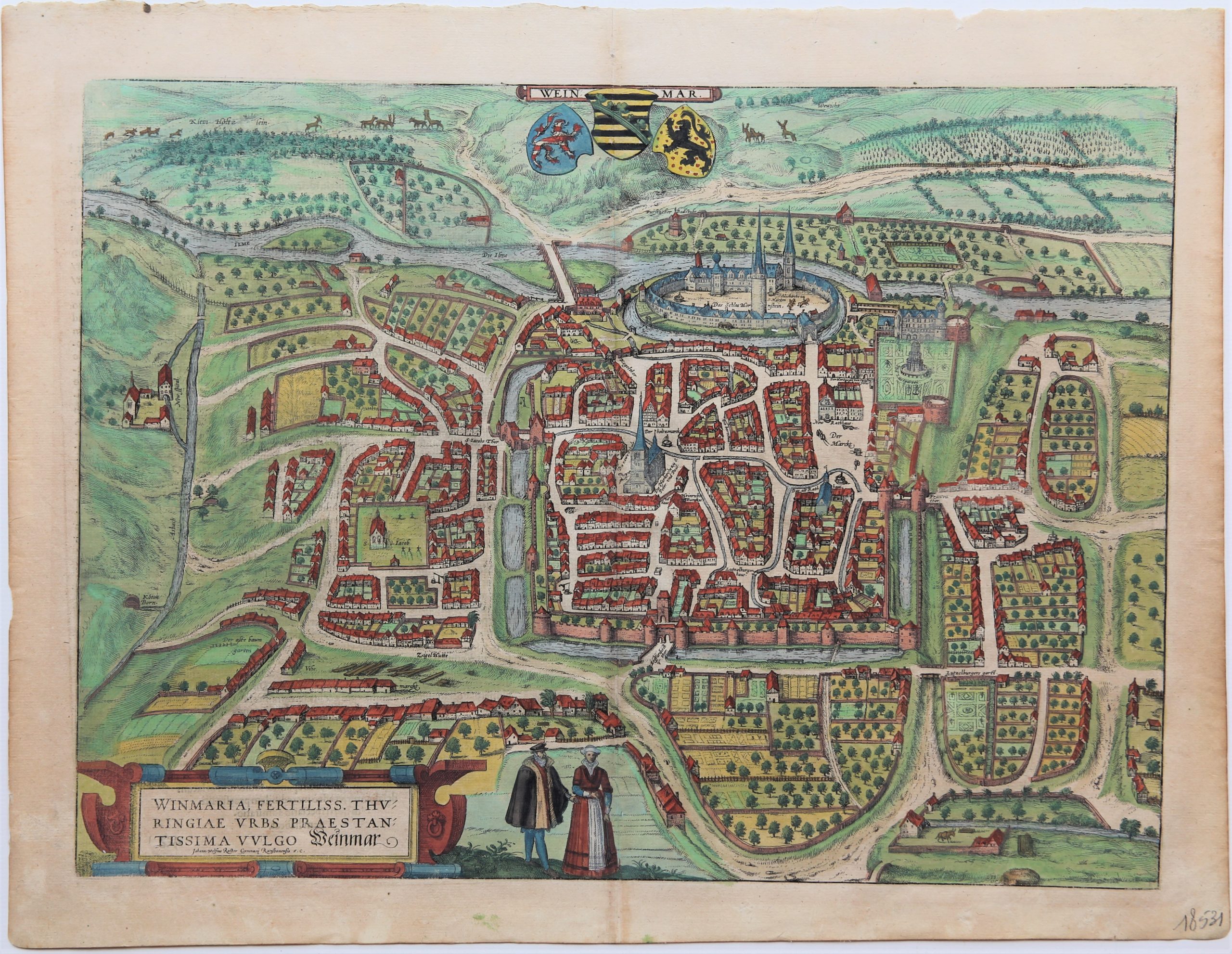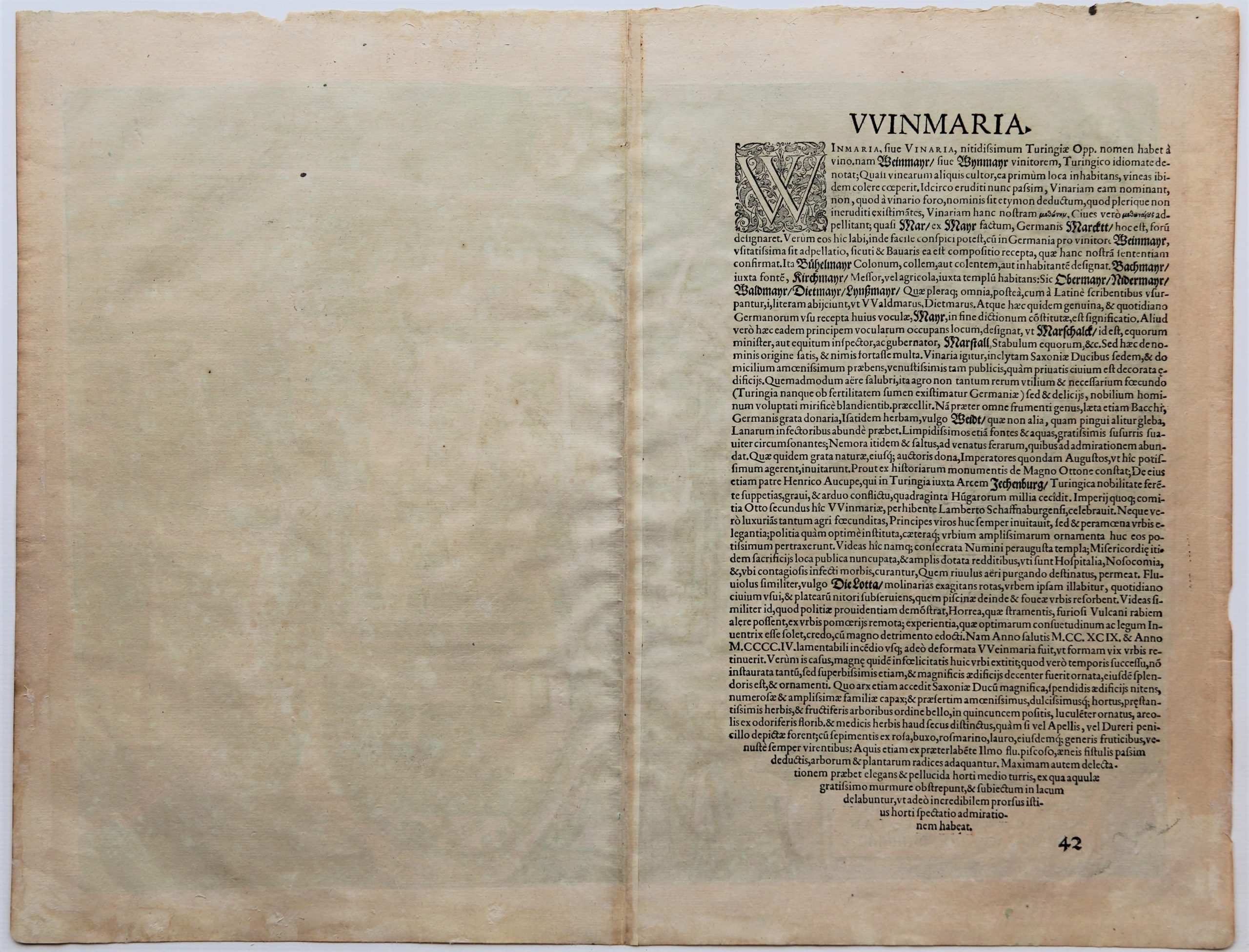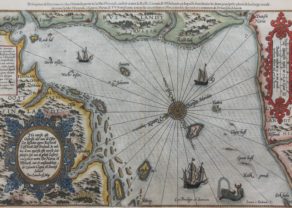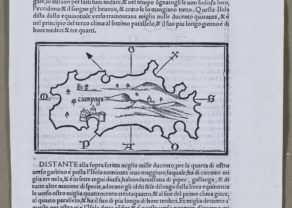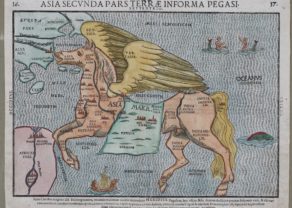Weimar (Thüringen)
Detail
Date of first edition: 1581
Date of this edition: 1581-1588
Item number: 36808
Price: 700 euro
Dimensions (not including margins): 35 x 47,3 cm
Dimensions (including margins): 41,2 x 53 cm
Condition: Very good. Sharp copper engraving printed on paper. Old coloured. Wide margins. Slightly age-toned.
Condition rating: A
Map reference: Van der Krogt 4, 4792; Taschen, Br. Hog., p. 245; Van der Krogt 4, 4792
From: Civitates Orbis Terrarum (III, Urbium Praecipuarum Totius Mundi, Liber Tertius), first published 1581, this edition 1581-1888, G. Kempen, Köln. Koeman B&H3; Van der Krogt 4,41:1-3, page 42
In stock
Weimar commented by Braun (verso)
“At this place the islands of Zealand and Scania, with foothills rising on both sides, lie so close to each other that there is scarcely one mile between them. Through this strait, called Oresund, many rivers from Germany, Livonia, Sweden and Russia, which have entered the Baltic Sea, rush past due to a difference in altitude into the great sea between Jutland, Denmark and Norway. All ships that pass through the sound have to stop at this place in order to pay their respects to the castle as the royal residence by lowering their sails and to pay customs dues on their cargo to the royal treasurer.”
Full Title: Winmaria Fertiliss. Thuringiae Urbs Praestantissima vulgo Weinmar
Taschen
This bird’s-eye view from the west demonstratively presents the sound as a Danish inland sea, in order to counter the Swedish claims to it. The cities of Helsingborg, Landskrona and Malmö, which were Danish at the time, and the Island of Ven can clearly be seen. In the foreground is the city of Helsingor with its late Gothic cathedral of St Olai, completed in the 15th century. In the sound a sea batlle is taking place, and Kronborg castle is under attack. This was a strategically important fortress, where the Sound Toll was collected from passing non-Danish ships. Kronborg castle entered world literature around 1600 as the scene of Shakespeare’s play Hamlet, Prince of Denmark.
